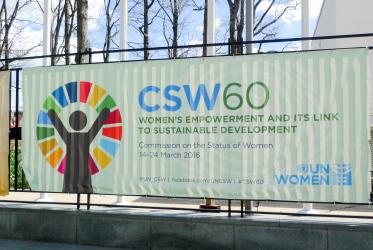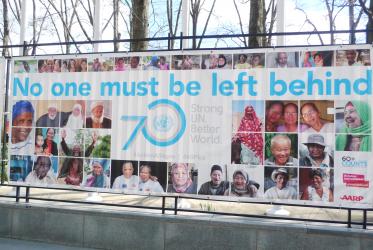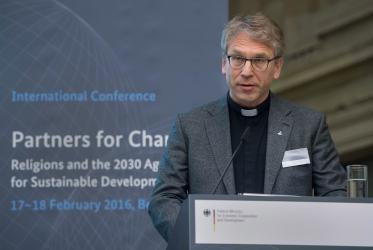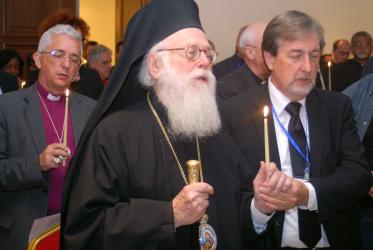Displaying 101 - 120 of 150
Panel discussion fields ideas on European identity
26 April 2016
Catholic-WCC group pursues new mandate
13 April 2016
International affairs facilitator reflects on pilgrimage
31 March 2016
Religious leaders as agents of peace in the Americas
02 March 2016
Symposium focuses on religion, violence, extremism
04 February 2016
Basel University honors Ghanian Methodist theologian
09 December 2015
WCC Executive Committee works toward a future of peace and justice
19 November 2015
WCC more united in the pilgrimage of justice and peace
13 November 2015













